It’s Working: Auto Workers’ Strike Strategy Is Forcing the Big 3 to Pony Up
The Auto Workers (UAW) have thrown the Big 3 on the back foot.
For the first time in recent history, the union is playing the automakers against each other—departing from its tradition of choosing one target company and patterning an agreement at the other two.
And its gradually escalating Stand-Up Strike strategy has multiplied the pressure that can move the companies off the dime.
Every Friday for four weeks, the CEOs waited with bated breath for UAW President Shawn Fain to announce strike targets.
U.S. Unions Call for Ceasefire in Gaza
While many union members and other workers are worried and horrified at the mounting war in Israel and occupied Palestine, U.S. unions so far have mostly remained silent.

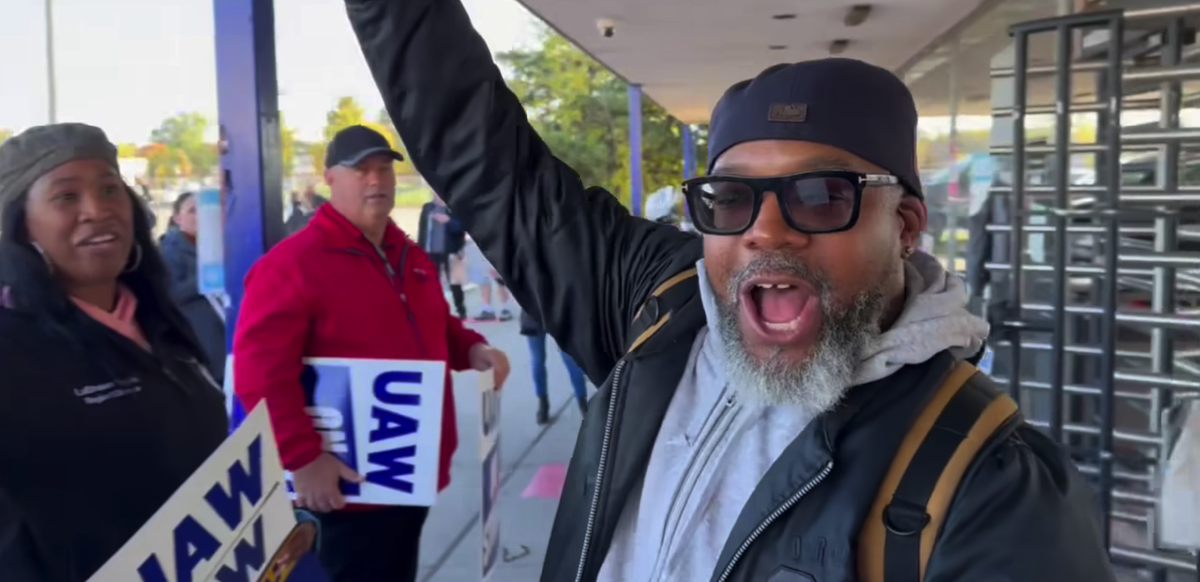
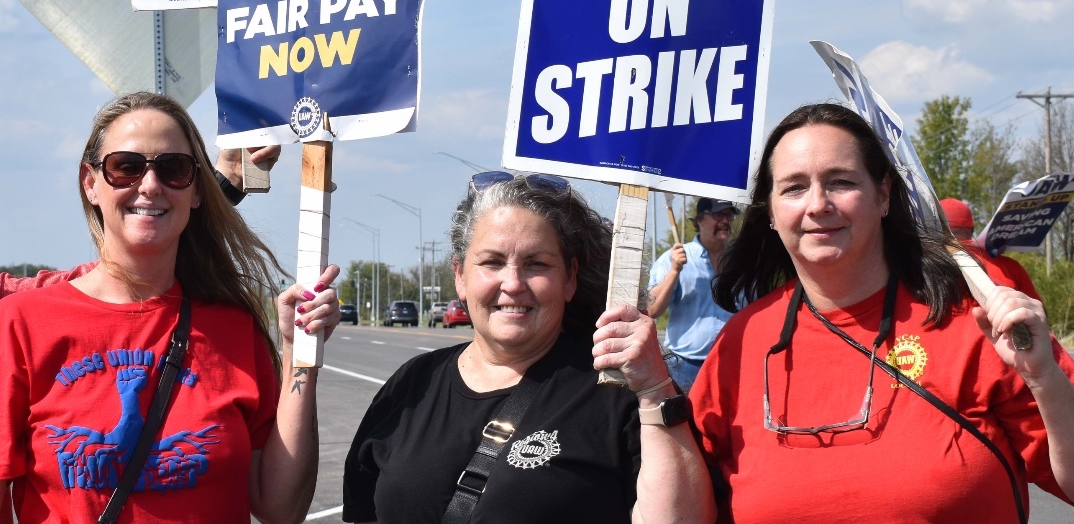
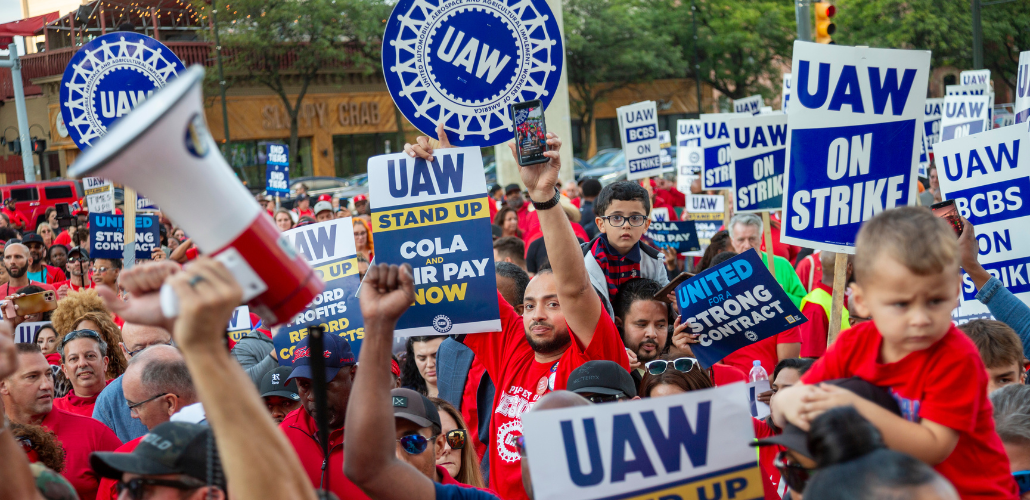
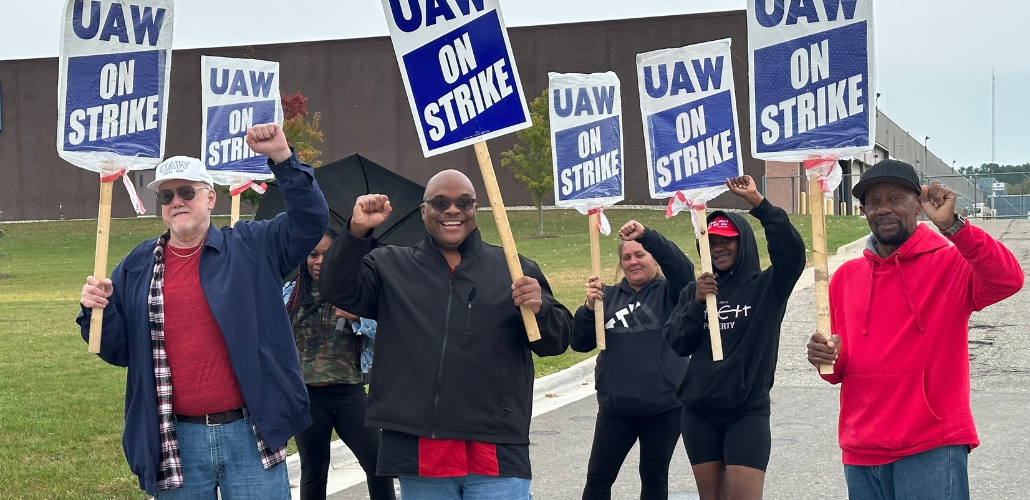
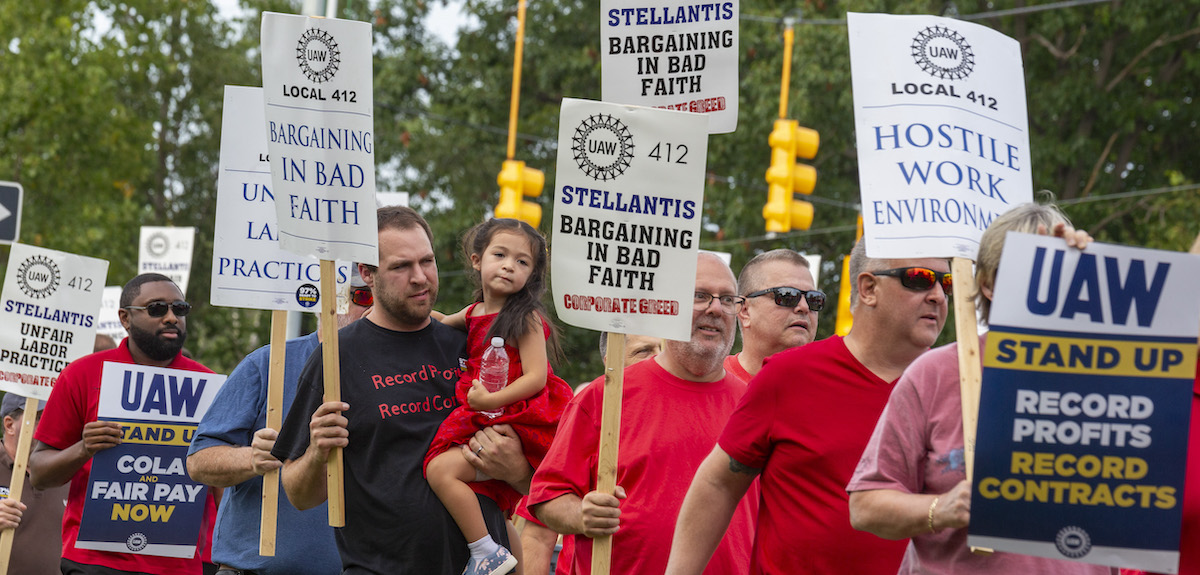
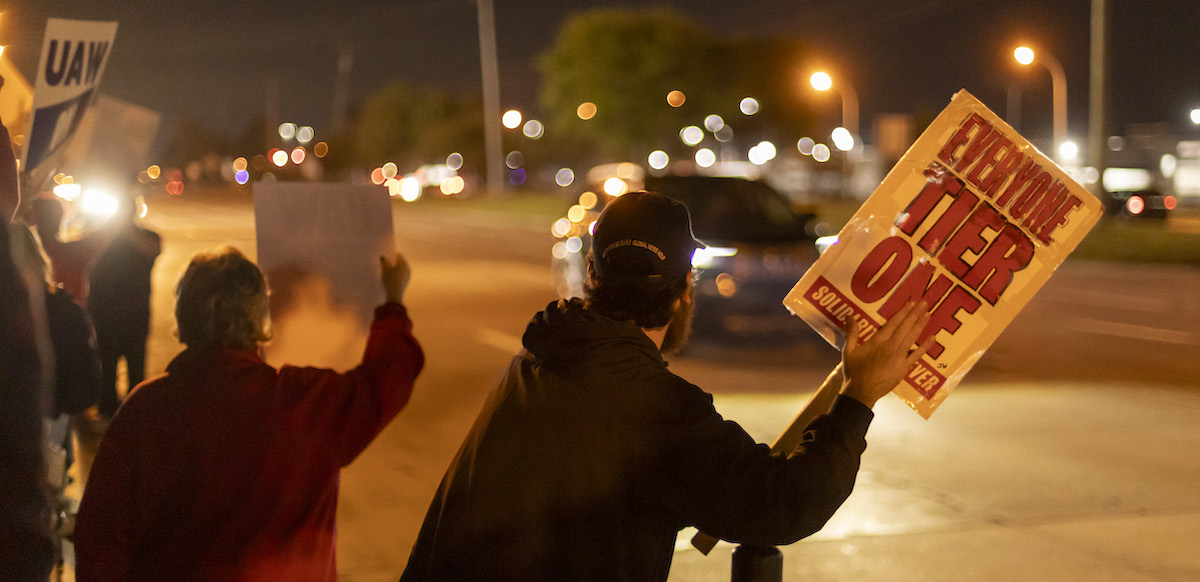
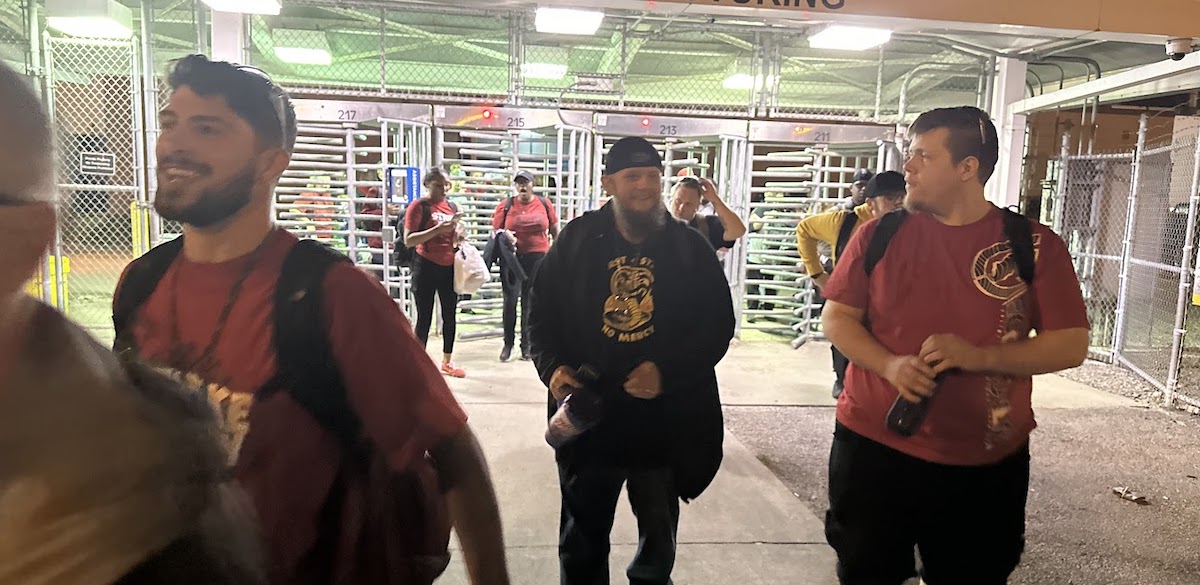
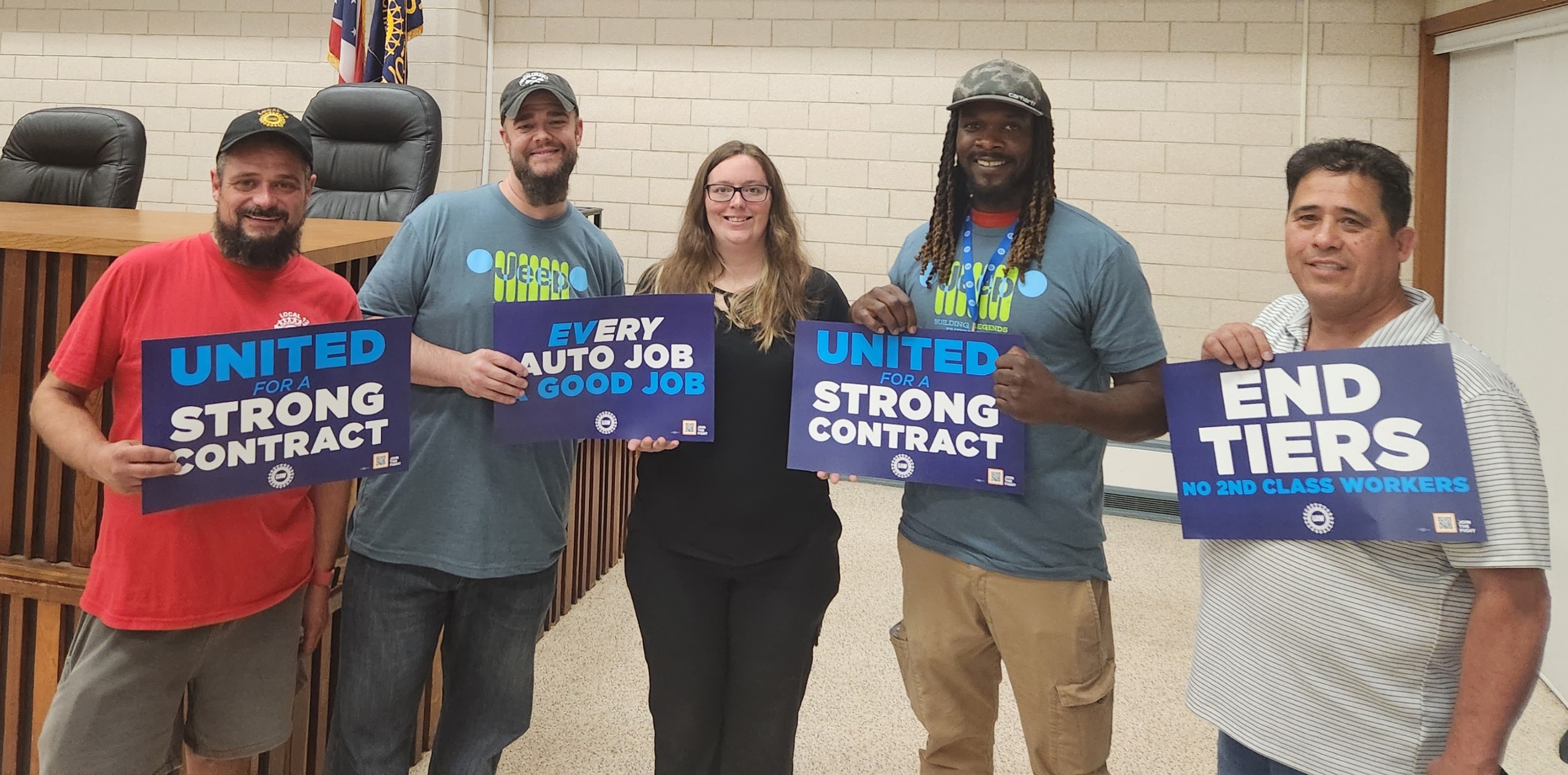
You must log in or register to post a comment.